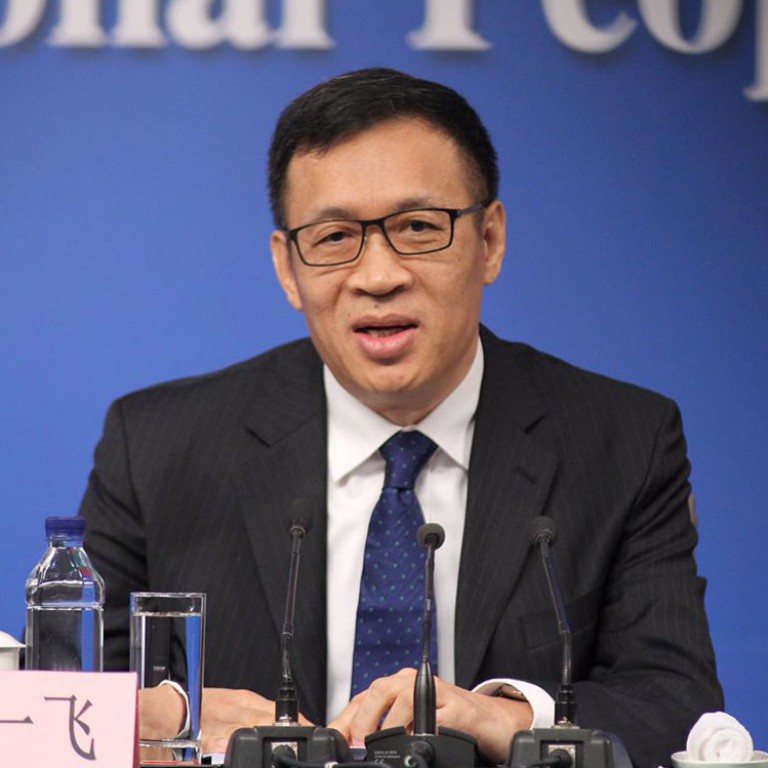
Chinese central bank top brass Fan Yifei held for investigation by anti-corruption watchdog
- Fan, 58, is one of six deputy governors at the People’s Bank of China and a key driver of the country’s digital currency campaign
- He is under investigation for ‘suspected serious violations of discipline and law’, Central Commission for Discipline Inspection website says
Fan Yifei, 58, is one of six deputy governors at the People’s Bank of China (PBOC).
A notice on the website of the party’s Central Commission for Discipline Inspection (CCDI) said Fan was being investigated over “suspected serious violations of discipline and law”, but gave no details.
Zero tolerance for corrupt cadres with business links, Xi Jinping warns
Fan is also the latest among a number of top finance officials detained in the past two years under a sweeping anti-corruption campaign targeting the sector.
The holder of a PhD in economics from Beijing’s Renmin University, and a master’s from Columbia University in the United States, climbed up the corporate ladder at CBC where he worked for 23 years.
His tenure spanned the decades when many heavyweight leaders – including Vice-President Wang Qishan, former PBOC governor Zhou Xiaochuan, and banking and insurance regulatory chief Guo Shuqing – were CBC governors.
Fan was CBC vice-governor for five years from 2005 before being appointed deputy manager of China Investment Corporation, a sovereign wealth fund that manages part of the country’s foreign exchange reserves.
He was named a PBOC deputy governor in 2015, at 51 years the youngest member of the leadership team at the central bank.
Fan’s portfolio at the PBOC includes the fintech and payment industry.
Xi Jinping tells Communist Party to keep up campaign against corruption
A report by Chinese media outlet Caixin on Saturday said there had been speculation in the past year over Fan being taken away by corruption investigators for talks. Fan’s secretary had also been detained, the report said.
Fan has played a key role in China’s digital currency and cashless payment drive. In September, he said the central bank was pushing for interconnectivity of its digital yuan with other electronic payment platforms, and hoped to establish a universal QR code for payment.
China to ‘deepen’ probe into mobile payment sector despite ‘progress’
During the opening ceremony of the national congress on October 16, Xi said the party would harshly punish senior cadres who colluded with business, sending signals that the anti-graft campaign in the financial sector would continue.
“[We must] resolutely put a stop to collusion between cadres in leading positions who become the spokespersons or agents of interest groups and powerful cliques,” Xi said in his work report to the party congress.
“[We will] take resolute action to address the political and environmental damage caused by collusion between politics and business.”

